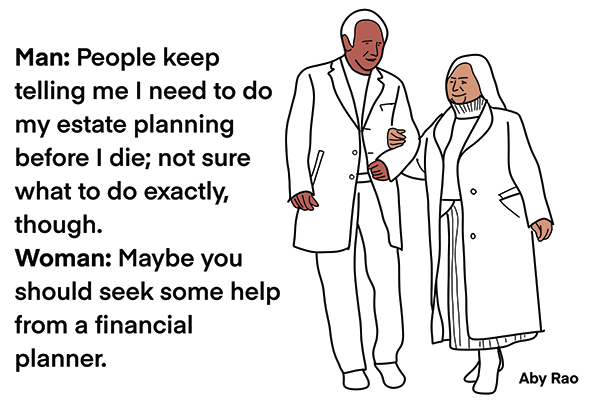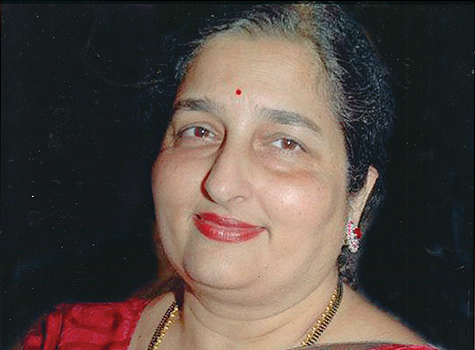
I would not blame you if the first thought that came to your mind was, “what on Earth are you talking about?” I have seen and witnessed too many stories where the painful result usually is that because someone had not prepared for the end of their life properly, and with forethought, things did not go well after the sad demise of that person. What should have been a time of sharing some meaningful memories and reminisce the time they had together, becomes an unresolved nightmare of unfinished business or, worse, disagreements amongst the family members about a myriad things like business and medical care decisions to the eventual funeral plans. One of the worst things to experience is when such an event happens to a young family, where usually such planning is on the backburner for obvious reasons.
Generally, when none or very little planning is done ahead of time, the painful process of winding down the estate, whatever that is, takes much longer. It is also more expensive and can easily sour many well-developed relationships. One just has to go through such experience to realize that something must be done ahead of time so that all kinds of ill-feelings and stresses can be avoided or eliminated. But the question is what exactly must be done now?
 One of the greatest legacies one can leave behind for their loved ones, and especially for the trustee who will handle the estate, is to ensure that they have all the information necessary if the estate holder is unable to speak for him/herself due to illness, injury or death. If the process of handling the estate is planned ahead, then much less time will be consumed for stressful searches of different accounts and other estates, deciding among family members how the estate division should happen and in resolving conflicts.
One of the greatest legacies one can leave behind for their loved ones, and especially for the trustee who will handle the estate, is to ensure that they have all the information necessary if the estate holder is unable to speak for him/herself due to illness, injury or death. If the process of handling the estate is planned ahead, then much less time will be consumed for stressful searches of different accounts and other estates, deciding among family members how the estate division should happen and in resolving conflicts.
Let us start with a list of all the assets in an estate that includes everything that belongs to the person and will be distributed to the next generation or whoever. I should point out that the trustee does not have to know what the exact amounts are and/or the dollar value of each account or each piece of asset but just the fact as to where he/she can find the information. This includes account numbers, a phone number to call someone or passwords and account IDs. Once a person is gone it takes much longer to put all this together, sometimes months, for the trustee and much effort and time is wasted. If there are special assets like heirlooms, wedding dresses or rings, jewelry, or even furniture and vacation cottages in specific locations, then the person who is giving that away needs to discuss that with all parties involved/interested. Settle these matters ahead of time so that these arguments don’t raise their ugly heads after the demise of the trustor and beneficiaries all know who is getting what.
By the same token, if there are items to be disposed of or discarded, then there should be clear instructions for that too. Stamps or coin collection or similar, antique cars or other items could fall into this category. What it comes down to is the fact that the trustor must imagine what will happen after death and take proper steps accordingly now while he/she is alive and well.
If there are too many relatives involved who are interested in all these things, then calling a meeting together to tell them, or may be discuss, as to what the Trustor has decided is a good idea so that everyone knows ahead of time and not get surprised when the Will is read. This way the Trustor can adjust his/her thinking, too.
Here is a chronological list of what the immediate steps are:
1. Prepare your Will. Almost 50 percent of the US population does not have a Will. I am on my 4th Will. Things change much over the decades, and you must make a new Will just about every 10 years. Assets change in nature and value; the trustees change and of course addresses too.
2. Assign a Trustee. I suggest at least two or three; but assign them in order so that only one trustee steps in; it is a good idea to avoid joint trustee situation, with some rare exceptions. The reason for two or three is that the trustees have a right to refuse the job in which case you need to have a name of the next in-line person. You do not wish to have State step in and assign a Trustee. All these available and willing trustees should know where to find the details of your assets (the list I talked about above) so that they are not in the dark about any of your wishes.
3. Prepare your list of all the assets and discuss that with the first trustee, at least. This list is to be updated every year.
4. Relax, enjoy, and keep good health. Now you know that you have it under control.
The other worry I always have is parents giving away too much money to their children, while they are alive, just because they were asking for it or they need it or something similar. That thought is noble but should not be the prime thought in the minds of any senior people. The primary thinking must be to make sure that you have enough to live on, something that will last you for your lifetime with all its ups and downs, in good/bad health and other aspects like inflation. Leaving something for the next generation is nice but not mandatory, essential, or required by any law. Charity of your own welfare comes before anyone else’s.
Mo Vidwans is an independent, board certified financial planner. For details visit, vidwansfinancial.com, call 734-476-0579 or write to: mvfinancial@yahoo.com



